Wagner at the Proms remembered | reviews, news & interviews
Wagner at the Proms remembered
Wagner at the Proms remembered
Five singers, three conductors and a director look back on a collective triumph of the bicentenary year
This summer, the Royal Albert Hall became the centre of the Wagnerian universe. No one was going to ignore Bayreuth, where Frank Castorf‘s new Ring gave plenty of fuel for column inches; but somehow the singers and the orchestra seem to have got lost there among all the apparently uninterpretable stage paraphernalia.
Sir John Tomlinson, whose thoughts specifically about the Prom Parsifal in which he sang the role of Gurnemanz follow below, says it all about clutter versus simplicity: “people talk about directors dominating and ruining things, but I think we’ve now moved into a designer phase of opera, where computer-generated imagery and projections and technical know-how dominate, and the director-designers seem to be saying, oh unfortunately there’s some singing going on, why don’t you stand over there and sing. And that’s happening more often, it’s an insult to singers, it’s as if directors don’t think singers can act, as if the singing’s a rather unfortunate sideshow to the main event which is all the technical stuff on the stage. When I’m in the audience, I want to see people, it’s all about character and interaction, and that’s what’s exciting about theatre." And these Proms.
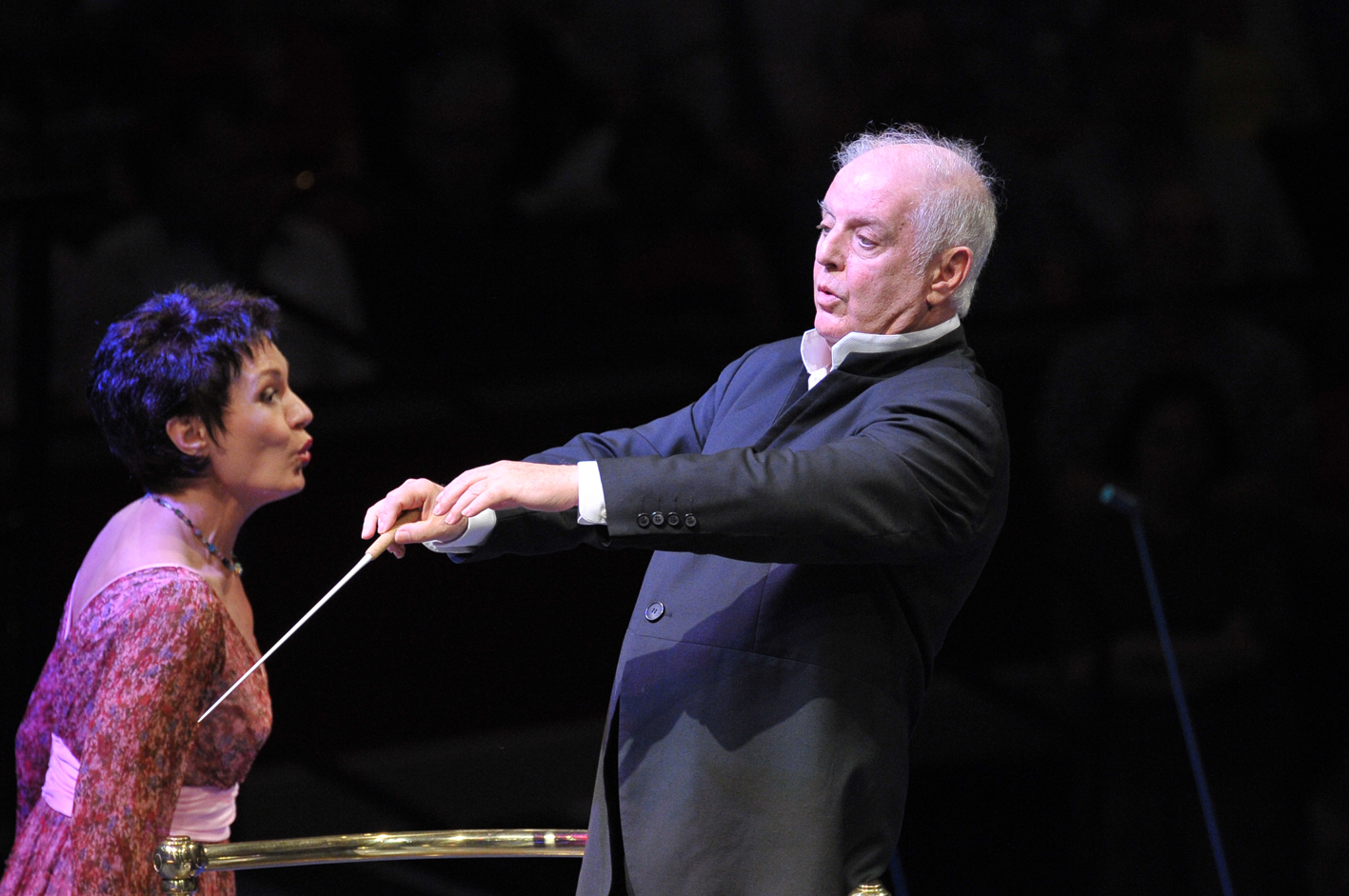 What performances they were. The Ring took centre stage with surely the very best cast imaginable, and conducted by a man who now knows it better than anyone in the world, Daniel Barenboim (pictured right in what Justin Way further down calls a "Wimbledon moment", in contact with Waltraud Meier), 26 years on from when he first cut his teeth on it alongside Tomlinson preparing for Harry Kupfer’s great production - the last time the cycle had such an impact at Bayreuth. Parsifal turned time into space with the Albert Hall transfigured into an even better Cathedral of the Grail, surely, than the festival theatre for which Wagner composed the work. There were unforgettable spatial effects, too, in Tannhäuser and Tristan.
What performances they were. The Ring took centre stage with surely the very best cast imaginable, and conducted by a man who now knows it better than anyone in the world, Daniel Barenboim (pictured right in what Justin Way further down calls a "Wimbledon moment", in contact with Waltraud Meier), 26 years on from when he first cut his teeth on it alongside Tomlinson preparing for Harry Kupfer’s great production - the last time the cycle had such an impact at Bayreuth. Parsifal turned time into space with the Albert Hall transfigured into an even better Cathedral of the Grail, surely, than the festival theatre for which Wagner composed the work. There were unforgettable spatial effects, too, in Tannhäuser and Tristan.
The festival of seven operas was unprecedented even in the risk-taking vision of Roger Wright. I know already that the performances I saw – four of them, with Tannhäuser and Parsifal no less extraordinary than the first two instalments of “the Barenboim Ring” - were among the highlights of my and many others' opera-going life. I knew, too, that they would have similarly resounded with the artists. So it seemed like a good idea to celebrate the Proms’ biggest ever project with reactions from many of the greats involved.
We begin with Daniel Barenboim’s unforgettable speech to the audience, and most specifically the Prommers, at the end of Götterdämmerung and finish – alphabetically – with the observations of Justin Way, who as director of the semi-stagings was present for all seven operas. In between other conductors Semyon Bychkov and Donald Runnicles, sopranos Katarina Dalayman and Violeta Urmana, tenors Simon O’Neill and Lars Cleveman and bass Sir John Tomlinson relive the experience and home in on what made it special to them.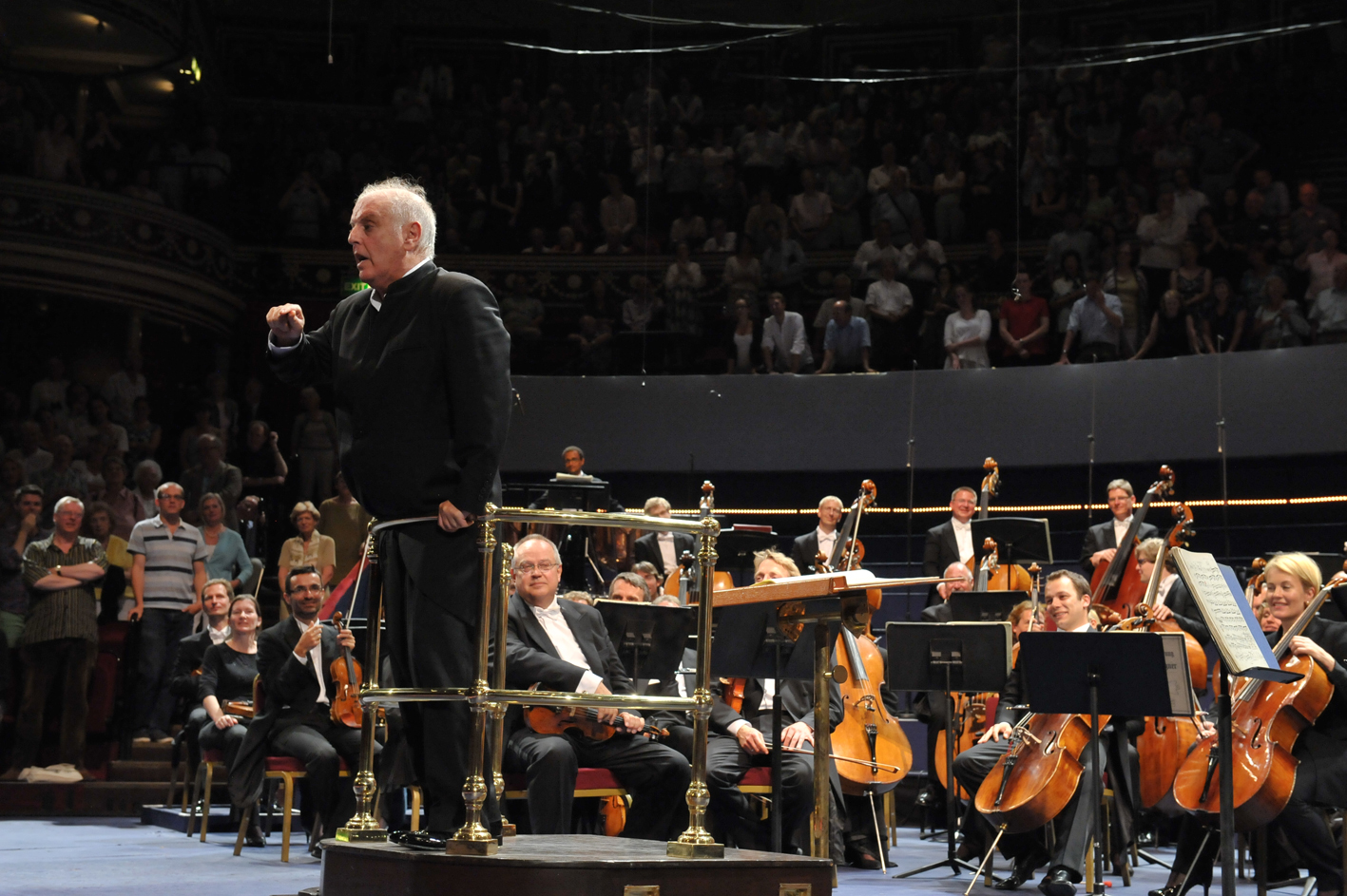
DANIEL BARENBOIM (conductor, Der Ring des Nibelungen, speaking in the hall on 28 July)
I have so much to be thankful for today. First of all this wonderful orchestra [huge cheers]. The Covent Garden Chorus – there’s not much left of it. And the wonderful singers whom you have applauded so heftily and so rightly. Today I also have to thank you because I must tell you we are very spoilt, the orchestra and I.
We play in many places and we very often have the feeling people really like us. But what you went through with us, I don’t know how many of you were here every evening [loud acknowledgement that plenty were], this is something I never dreamt of and I never thought would be possible, because the communion between us musicians and you public depends not only on us but also on you, and you have brought so much silence [cheers and laughter]. It is not a joke, because you listen so quietly and so wonderfully that we really stand in awe before you because of all that. And then of course people always say the Proms is wonderful, and all these people standing up and I say no, they want to conduct.
Barenboim goes on to praise the concert master/leader Wolf-Dieter Batsdorf, who was giving his last concert after 40 years with the orchestra. “And I want you to give him the greatest applause of the evening because he has been one of the main pillars of this orchestra." So the audience did, and Herr Batsdorf wiped away a tear (or was that sweat?) The film of the full speech is available on the BBC Proms website here.
Next page: Semyon Bychkov, Lars Cleveman, Katarina Dalayman and Simon O'Neill reminisce
SEMYON BYCHKOV (conductor, Tristan und Isolde)
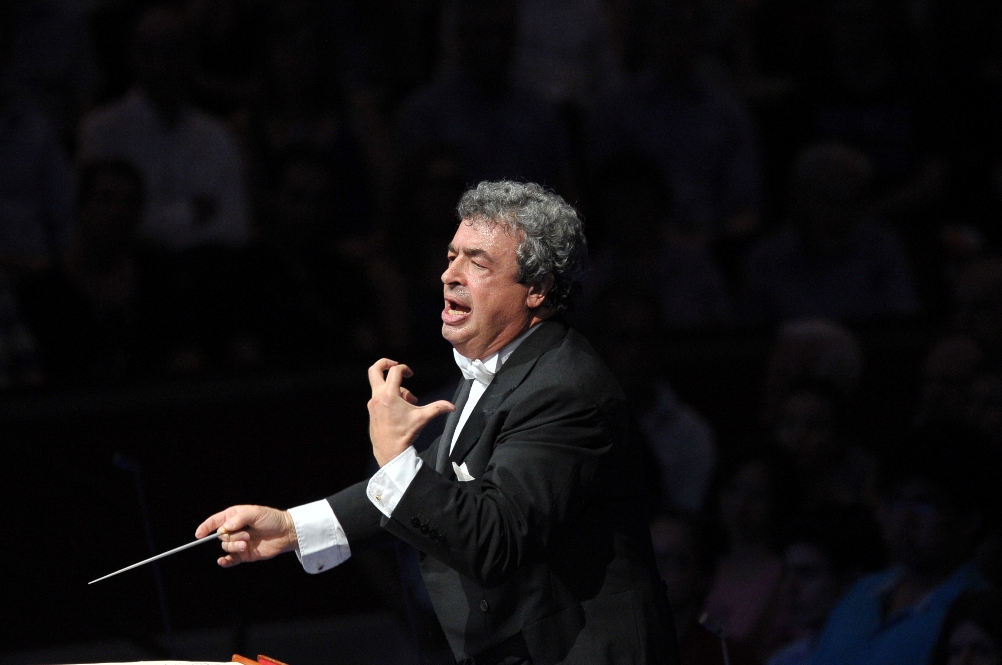 Sharing music with an audience should be a memorable experience. It is what I always hope for. Yet some performances are inevitably more memorable than others. So much has to converge at the same time, not least a total conviction for the music one is interpreting combined with all-absorbing identification. But this conviction can't just come from the podium, it has to be shared by everyone. And, for there to be a joint vision of the work, there has to be enough preparation time for all the artists involved to achieve the maximum performance quality that their talent is capable of.
Sharing music with an audience should be a memorable experience. It is what I always hope for. Yet some performances are inevitably more memorable than others. So much has to converge at the same time, not least a total conviction for the music one is interpreting combined with all-absorbing identification. But this conviction can't just come from the podium, it has to be shared by everyone. And, for there to be a joint vision of the work, there has to be enough preparation time for all the artists involved to achieve the maximum performance quality that their talent is capable of.
This is what made the Tristan and Isolde project at the BBC Proms so special.There was not a single soul involved who didn't feel privileged to be part of something infinitely greater than any one of us, something as vast as the universe itself, something that makes life worth living. For those of us who were on stage that evening, it was clear that Wagner's creation meant as much to our audience as it did to us. The atmosphere of the Proms is unique in the world of music. It becomes even more so when there is a consensus on the eternal value of the work that is being performed. With Tristan and Isolde, the audience’s participation in the story that unfolded was palpable. We could hear the silence. We could feel the communion. It was an unforgettable experience.
LARS CLEVEMAN (Parsifal, pictured with Sir John Tomlinson's Gurnemanz)
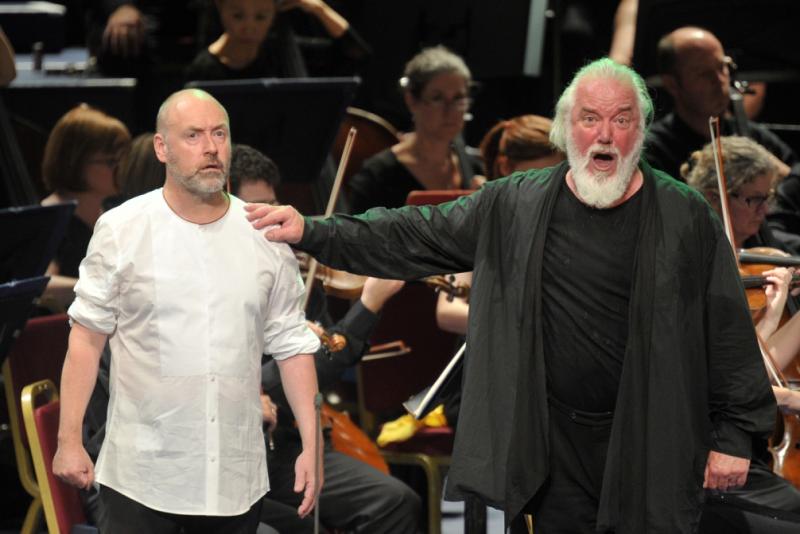 This was my first time ever in the Albert Hall, and I was struck by the size and beauty of the building. The audience in the arena fascinated me, with their stamina and dedicated interest through five hours of music. To work with a Gurnemanz of Sir John Tomlinson’s stature was an honour, and something I shall remember always. I think the idea with semi-staged opera is great, especially with Wagner, where so much is happening in the music. It leaves a great deal to the imagination of the audience.
This was my first time ever in the Albert Hall, and I was struck by the size and beauty of the building. The audience in the arena fascinated me, with their stamina and dedicated interest through five hours of music. To work with a Gurnemanz of Sir John Tomlinson’s stature was an honour, and something I shall remember always. I think the idea with semi-staged opera is great, especially with Wagner, where so much is happening in the music. It leaves a great deal to the imagination of the audience.
KATARINA DALAYMAN (Kundry in Parsifal)
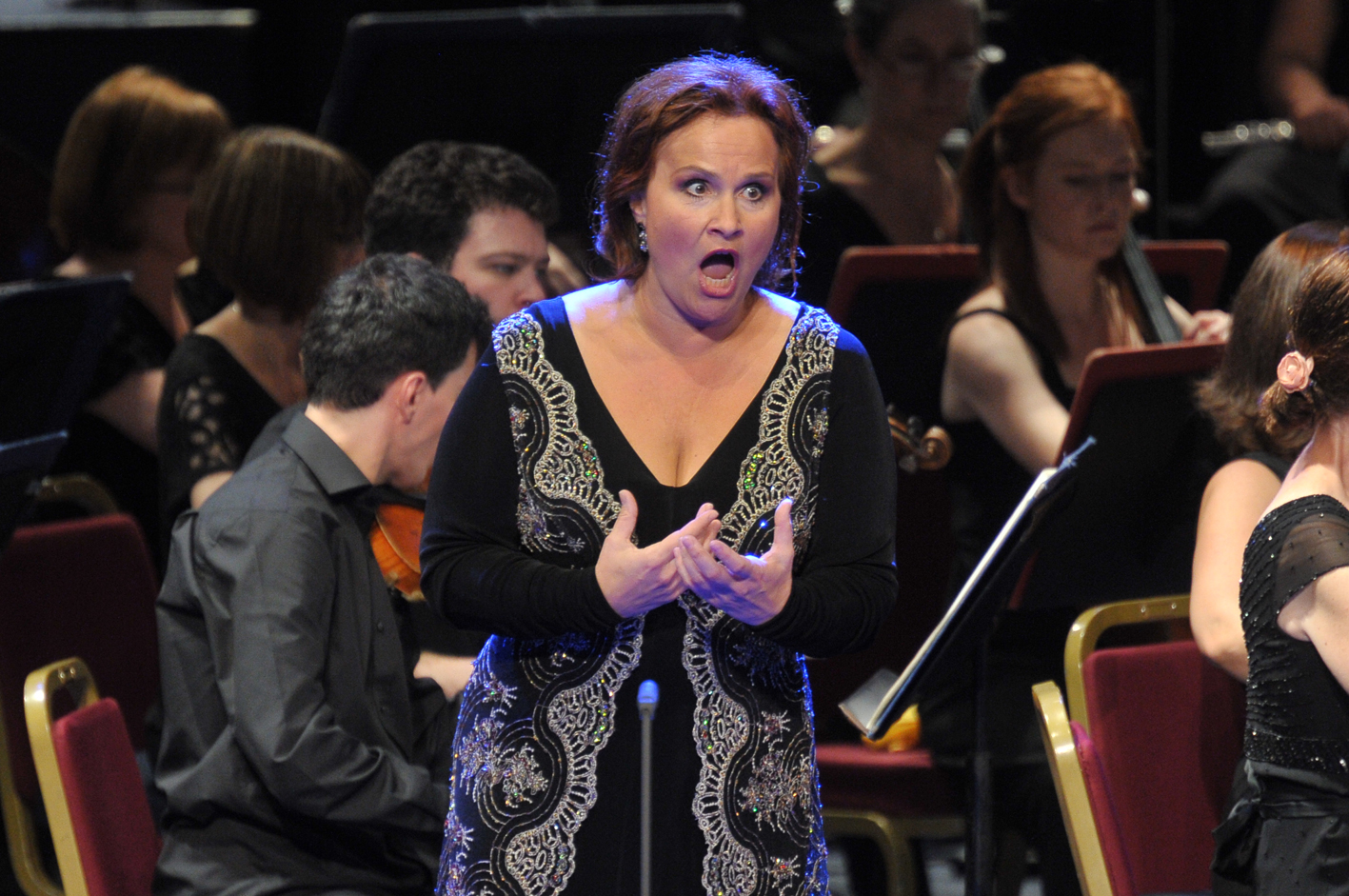 For me the heights to which this Parsifal Prom soared were thanks to Mark Elder’s extraordinary conducting. The very slow tempi he chose at certain places gave a certain mood and raised the work to an even higher level than usual – it felt even more meditative and sacred.
For me the heights to which this Parsifal Prom soared were thanks to Mark Elder’s extraordinary conducting. The very slow tempi he chose at certain places gave a certain mood and raised the work to an even higher level than usual – it felt even more meditative and sacred.
And then there was John Tomlinson! The way he sang and created the character of Gurnemanz is something I’ve seldom experienced before. He gave a new meaning to every line. What an artist! And for me, Kundry is my favourite part to sing and act. It suits my voice and personality, I guess – even though she is a very weird character. Maybe I am too….
SIMON O'NEILL (Siegmund in Die Walküre)
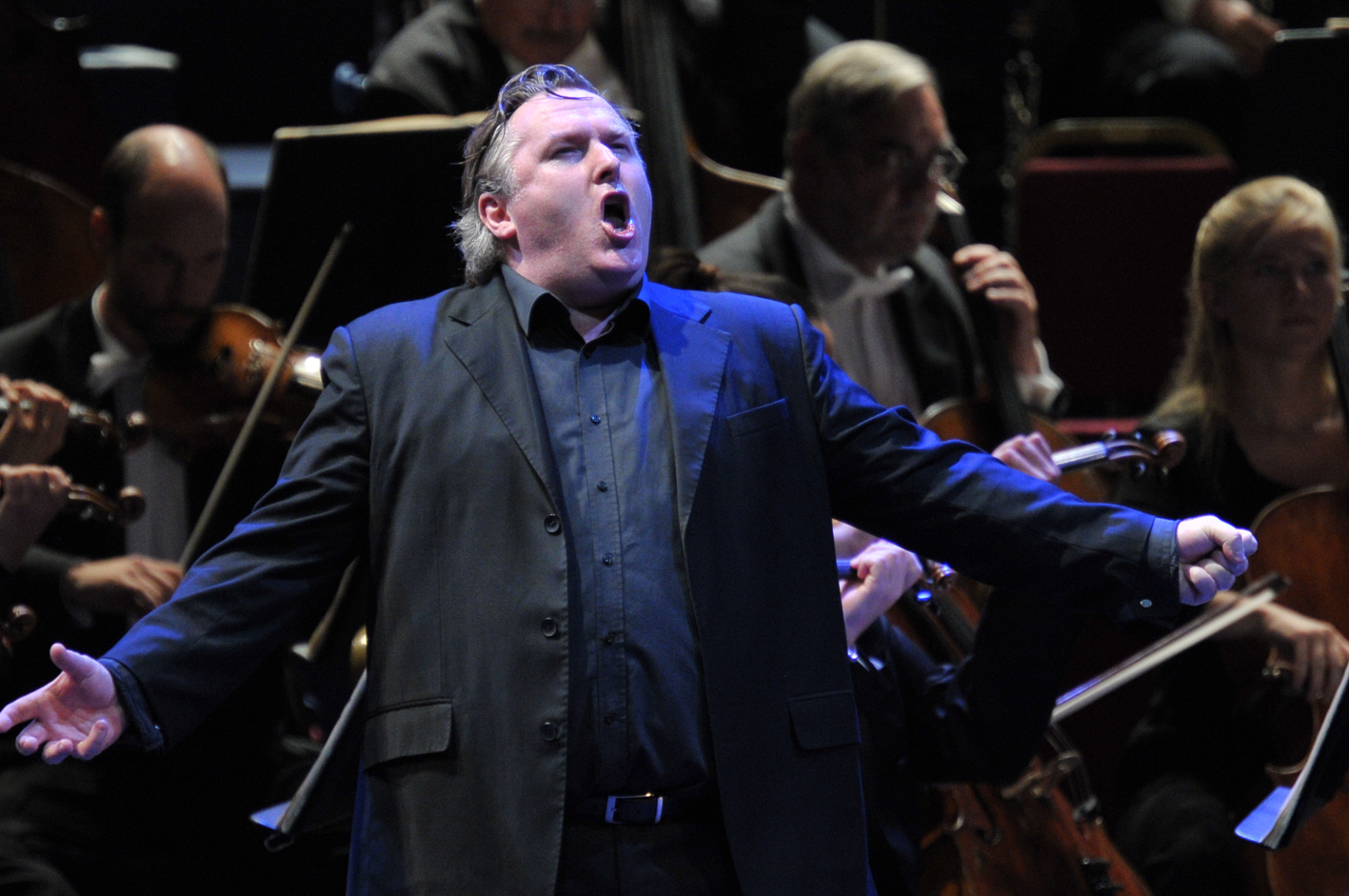 The 2013 BBC Proms have once again proven to be a huge hit for the UK and international audience. Not only was it a massive honour to be included as one of the artists for this Proms season; to be cast as Siegmund in the Daniel Barenboim/Berlin Staatskapelle performance of Die Walküre was also a huge career highlight for me. The 2013 Proms performance topped my Wagner year as my seventh different "production"- to share the stage with the fantastic Anja Kampe, Katya Gubanova, Nina Stemme, Eric Halfvarson and the great Bryn Terfel was an incredible experience.
The 2013 BBC Proms have once again proven to be a huge hit for the UK and international audience. Not only was it a massive honour to be included as one of the artists for this Proms season; to be cast as Siegmund in the Daniel Barenboim/Berlin Staatskapelle performance of Die Walküre was also a huge career highlight for me. The 2013 Proms performance topped my Wagner year as my seventh different "production"- to share the stage with the fantastic Anja Kampe, Katya Gubanova, Nina Stemme, Eric Halfvarson and the great Bryn Terfel was an incredible experience.
I invited my niece and her friend to the concert, who have not been to an opera before, and they thought the audience reaction and applause was like a Pearl Jam concert! Being part of the performing team on the Royal Albert Hall stage one certainly felt this great release of energy from the Proms audience. And Maestro Barenboim…well, that was a bloody wonderful experience, Sir!!
Next page: Donald Runnicles and Sir John Tomlinson
DONALD RUNNICLES (conductor, Tannhäuser)
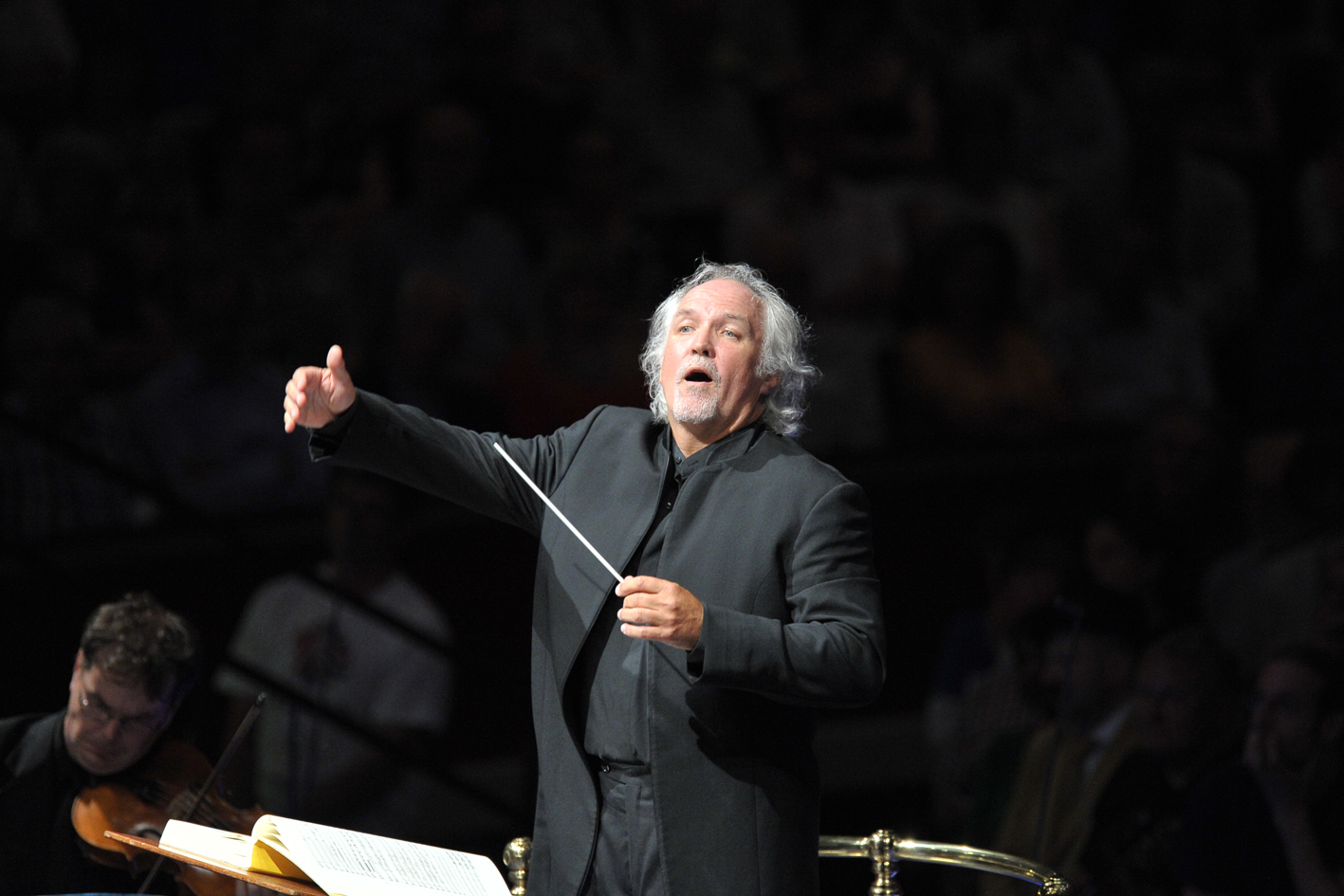 There were two standout features for me. One, of which I’m obviously not a little proud and for which I’m very grateful, is the fact that Roger Wright gave me the chance to bring together the BBC Scottish Symphony Orchestra, with whom I’ve done quite a bit of Wagner [including a Tristan und Isolde spread over three concerts last season], and the chorus of the Deutsche Oper. Combining these two sound worlds, these two cultures, these two countries together in Wagner’s epic work was for me very significant. And to hear them feed off one another in a kind of lovefest was very moving.
There were two standout features for me. One, of which I’m obviously not a little proud and for which I’m very grateful, is the fact that Roger Wright gave me the chance to bring together the BBC Scottish Symphony Orchestra, with whom I’ve done quite a bit of Wagner [including a Tristan und Isolde spread over three concerts last season], and the chorus of the Deutsche Oper. Combining these two sound worlds, these two cultures, these two countries together in Wagner’s epic work was for me very significant. And to hear them feed off one another in a kind of lovefest was very moving.
The other aspect is that one of the best theatres in the world is indeed the Royal Albert Hall with this extraordinary architectural space. I think Richard Wagner would really have relished the chance to have braying horns around the hall or English horn at one side or sirens from Venusberg hovering somewhere which gave them this really magical quality. One can play with that hall, and of course there’s plenty of space onstage; for me it was a lot of fun putting it together. I’m not suggesting that it should always be like this but the chance to really focus on that music and also on the theatricality with which Wagner uses the orchestra and the offstage forces and offstage choruses just gives the space something unique.
Tannhäuser is a very hard opera to stage; it needs an absolutely first rate production to get to the essence, and I’ve experienced that. This was a different way of hearing it. I think what Justin Way achieved with limited time in the Albert Hall was very fine, and the lighting worked excellently to create a mood. I think we did get to the essence. You go back with very different ears when you next hear any of these works in the opera house.
SIR JOHN TOMLINSON (Gurnemanz in Parsifal)
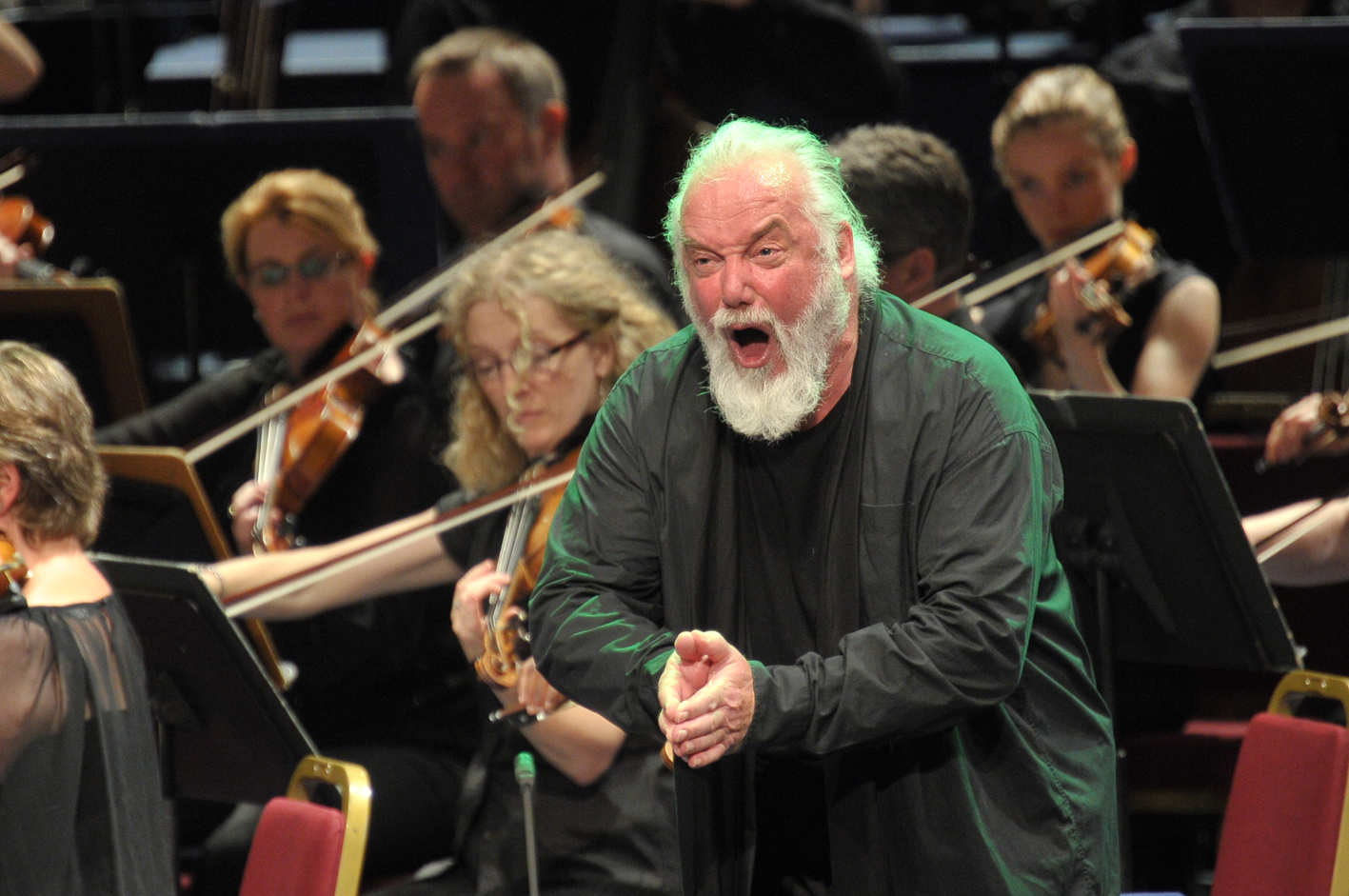 It’s the great strength of these Proms performances that the more opera in the theatre is heading in a rather technological direction, with the singers relegated to the sidelines in favour of a spectacle, an image, it’s incredibly refreshing to go back to what opera is about, which is about interactions between singers, the dramatic impact of the one to ones. That’s the essence of the art form. It’s what I think we had in the Ring where I sang my first Wotan, Kupfer’s Bayreuth staging of the late 1980s and early 1990s - the huge stage was bare with often only a couple of singers on it - and it’s what we had here, although with the orchestra and chorus behind us.
It’s the great strength of these Proms performances that the more opera in the theatre is heading in a rather technological direction, with the singers relegated to the sidelines in favour of a spectacle, an image, it’s incredibly refreshing to go back to what opera is about, which is about interactions between singers, the dramatic impact of the one to ones. That’s the essence of the art form. It’s what I think we had in the Ring where I sang my first Wotan, Kupfer’s Bayreuth staging of the late 1980s and early 1990s - the huge stage was bare with often only a couple of singers on it - and it’s what we had here, although with the orchestra and chorus behind us.
The key to these semi-staged performances is that you have a cast who have done several productions. We only had one staging rehearsal the afternoon before the performance, after four rehearsals with the orchestra in Manchester. There’s only really time to work out basically where we’re coming in from, on what side of the stage we stand, and then you just let it happen. Justin would be the first to say that. He provides the fertile ground and the well thought out structure, he’s got a very good eye and he’s very decisive, what will work and what won’t, and then you have have half a dozen experienced principals. It’s a sort of improvisation, you let it happen, and as long as you have good artists it works a treat in the Albert Hall, that’s been proved many times, hasn’t it.
One of the things about Wagner is that the watch plays tricks. If it’s good, two hours just feel like five minutes
The Proms are very special and I suppose in the opera house you have a bit of distance from the public, they’re in the dark with the orchestra in between you and them. You have the trappings of opera to shield you from absolute exposure, and in the Proms you don’t have that. I always get a bit nervous because you’re out there within a couple of metres of the people in the Arena and sitting at the sides, completely exposed, more than in any other venue – even in a concert version of Parsifal, let’s say in the Festival Hall or Barbican, you still wouldn’t quite have that feeling of being in a crucible.
I thought it was as if Parsifal could have been written for the Albert Hall, not just in terms of the choirs in the gallery and so on which were amazing. But the building was constructed about the same time as Bayreuth, wasn’t it, and Wagner came to the Albert Hall to hear performances of his works, sitting at the side of the stage. I love working with the Hallé and Mark, I haven’t done much with them recently, but the relationship between him and the orchestra is wonderful, like Rattle and Birmingham used to be. It’s like one entity, and they make such a very clear, true sound, a very disciplined and solid sound. And Mark is a real Wagnerian, in the Reggie Goodall tradition. So he often takes his time, but one of the things about Wagner is that the watch plays tricks. If it’s good, two hours just feel like five minutes. That is part of the magic that Wagner makes when it’s a good performance.
Last page: Violeta Urmana and Justin Way
VIOLETA URMANA (Isolde, pictured with Robert Dean Smith's Tristan)
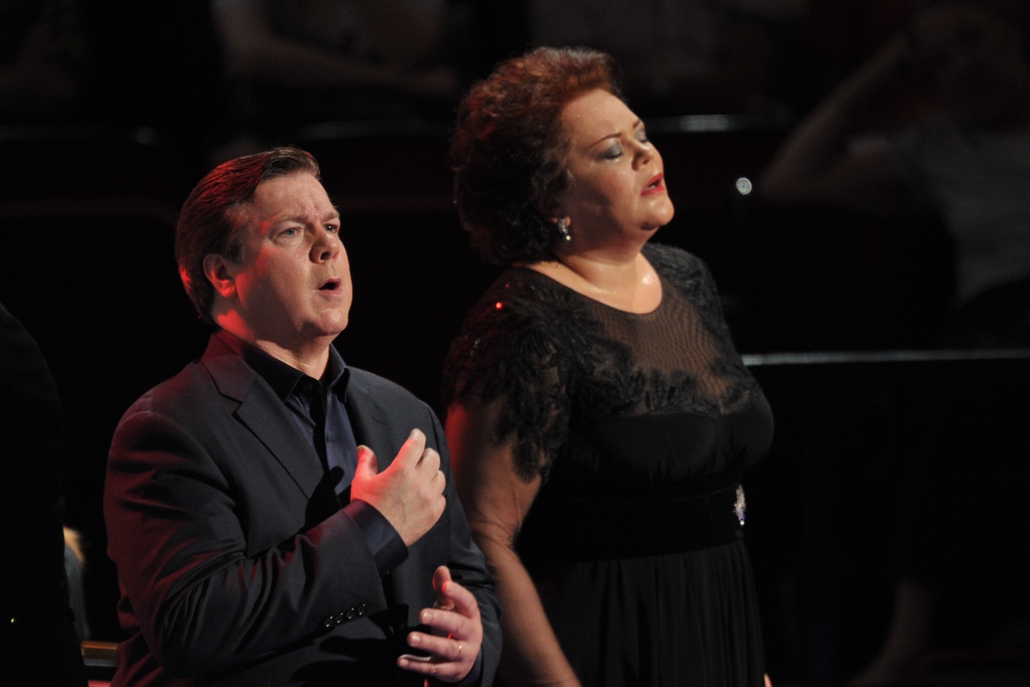
The hall is huge, but I felt as if Tristan und Isolde really needs this space to unfold all of the colours and power of passion within the music. The lighting also helped create the atmosphere we needed for the more intimate moments. And I especially enjoyed singing the soft music of Isolde, because the acoustic was excellent. But I couldn't believe that in such a huge space it can become so hot ... and this time I'm not speaking about the passionate love of Tristan and Isolde ...!
I loved working once again with the great musicians Maestro Semyon Bychkov and my wonderful colleagues.
JUSTIN WAY (stage director)
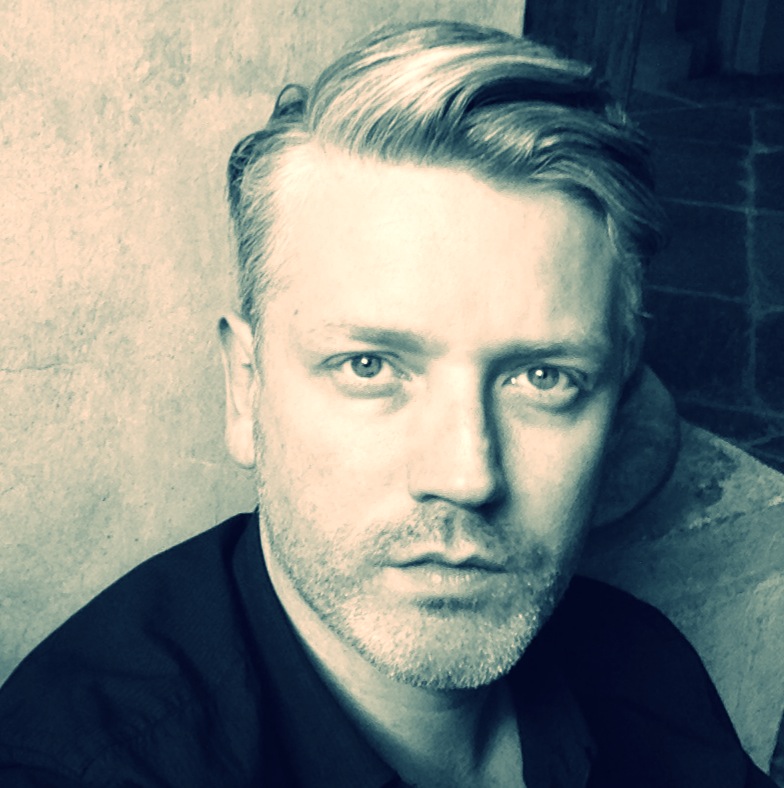
The space was very regular in one sense in that we had the same five entrances to use, the same tricks to place people in different parts of the auditorium to create different narrative and acoustic effects. The Staatskapelle Berlin is a pit orchestra used to being quite tightly bunched together so there was a bigger sense of playing space for them. The other orchestras aren’t pit orchestras so it was a different matter. As for the singers, well, some I knew from the Royal Opera [where he is chief of staff directors] and some I didn’t, it was great to grab hold of them and set up a rhythm given the parameters in the space and an incredibly limited rehearsal time.
To watch Daniel swinging himself around to give them a pick-up or to catch them was terribly exciting. It was pure Wimbledon
I said to a colleague last night you either need six weeks or six minutes. To create clarity on stage often takes a lot of time. However if you have nothing that’s going to clutter, and you only have to eradicate all potential problems as clearly and as swiftly as you can, especially in material like this it’s going to be tremendously expressive because they’ve got all that space to communicate with each other. I can’t really take the credit for those one to ones, it’s in the score and text and the intelligence of the artists.
The problems are anything large, a group of gods, valkyries, then there's very little choice in what you’re going to do. But in those duets, yes, they had such freedom, especially with Daniel who encouraged them to let loose, he wanted a certain amount of contact with them, he encouraged them to be very bold with the way that they played it. There was no look at me, look at me, and to watch him swinging himself around to give them a pick-up or to catch them was terribly exciting. It was pure Wimbledon. And I was really just thrilled to be involved, I’ll never forget it.
Share this article
The future of Arts Journalism
You can stop theartsdesk.com closing!
We urgently need financing to survive. Our fundraising drive has thus far raised £49,000 but we need to reach £100,000 or we will be forced to close. Please contribute here: https://gofund.me/c3f6033d
And if you can forward this information to anyone who might assist, we’d be grateful.

Subscribe to theartsdesk.com
Thank you for continuing to read our work on theartsdesk.com. For unlimited access to every article in its entirety, including our archive of more than 15,000 pieces, we're asking for £5 per month or £40 per year. We feel it's a very good deal, and hope you do too.
To take a subscription now simply click here.
And if you're looking for that extra gift for a friend or family member, why not treat them to a theartsdesk.com gift subscription?

Add comment